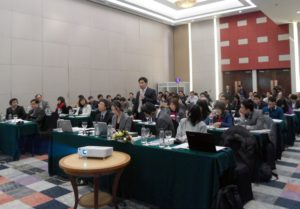
A number of organizations have noted one of the primary challenges of implementing energy efficiency programs for Vietnam's building sector is the lack of technical skills regarding energy efficiency and lack of knowledge of systematic energy management in enterprises and large buildings. The International Partnership on Mitigation and MRV, United Nations Environment Programme, and others have provided in depth analysis to this end and sources are attached. Meanwhile, the Pacific Northwest National Laboratory, part of the U.S. Department of Energy has propsosed a training plan targetting building energy efficiency in Vietnam.
PNNL Proposal
Vietnam has experienced fast growth in energy consumption in the past decade, with annual growth rate of over 12 percent. This is accompanied by the fast increase in commercial energy use, driven by rapid industrialization, expansion of motorized transport, and increasing energy use in residential and commercial buildings. Meanwhile, Vietnam is experiencing rapid urbanization at a rate of 3.4 percent per year; and the majority of the growth centered in and near major cities such as Hanoi and Ho Chi Minh City. This has resulted in a construction boom in Vietnam.
In response to the building sector’s growth, the Government of Vietnam introduced a decree on energy efficiency in 2003 in an effort to define energy conservation, particularly in building construction, and this resulted in the development of building energy efficiency code in 2003. However, the 2003 energy efficiency building code, which was updated in 2005, was not widely implemented. The Government of Vietnam is currently updating and modifying the code for broad implementation. Given limited capacity in building energy efficiency in Vietnam, there is a need for significant efforts to train stakeholders and build capacity for the implementation of the energy efficiency building code.
This proposed training plan is based on the review of the 2011 Vietnamese Energy Efficiency Building Code (VEEBC) and international experience in developing and conducting training programs on building energy efficiency. The proposed training plan is aligned with the planned implementation set-up in Vietnam, based on the discussion with the Ministry of Construction and various stakeholders. It includes training plans and mechanisms for both short-term and long-term. Developing a discrete training gap analysis and plan could flesh out the ideas of the Ministry of Construction on training and ensure a strong foundation for future energy efficiency improvements.

